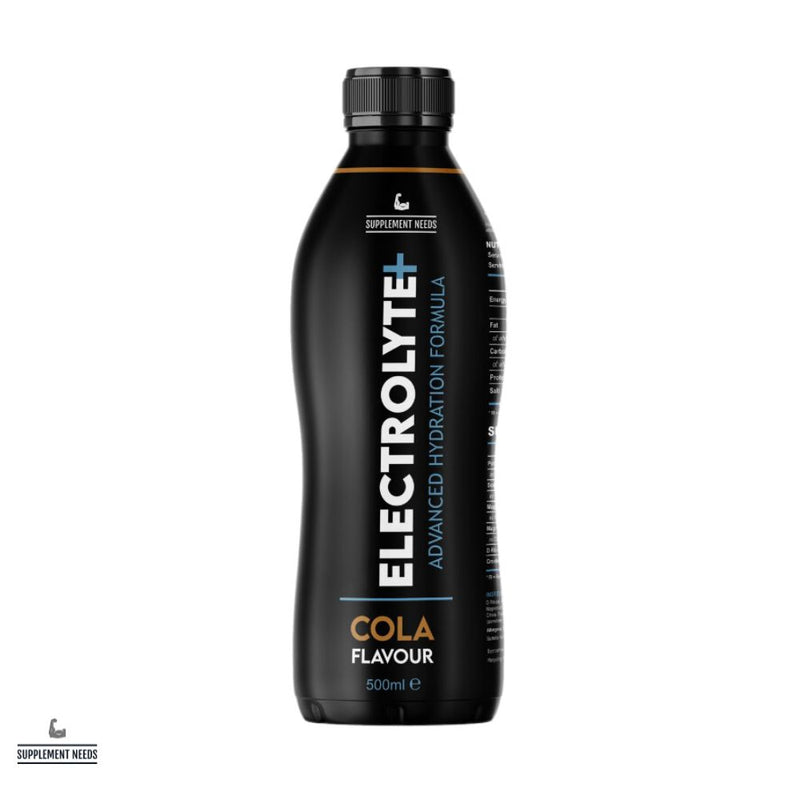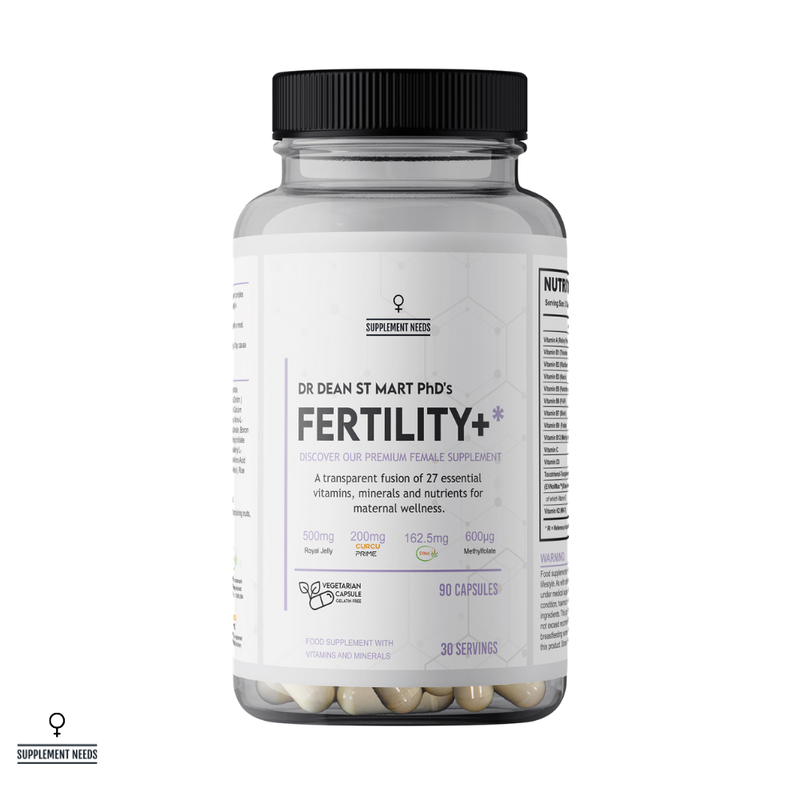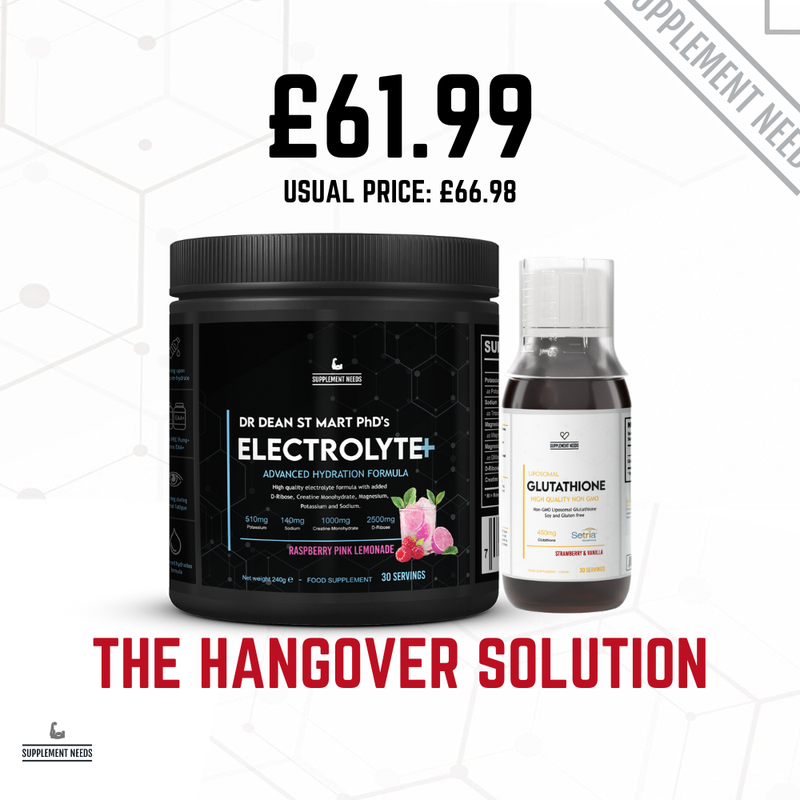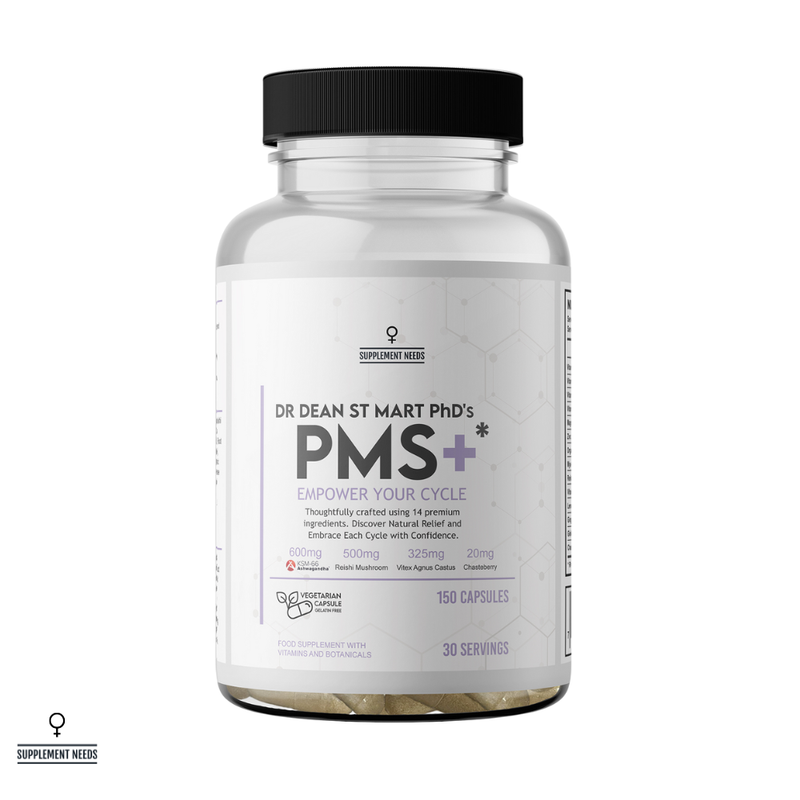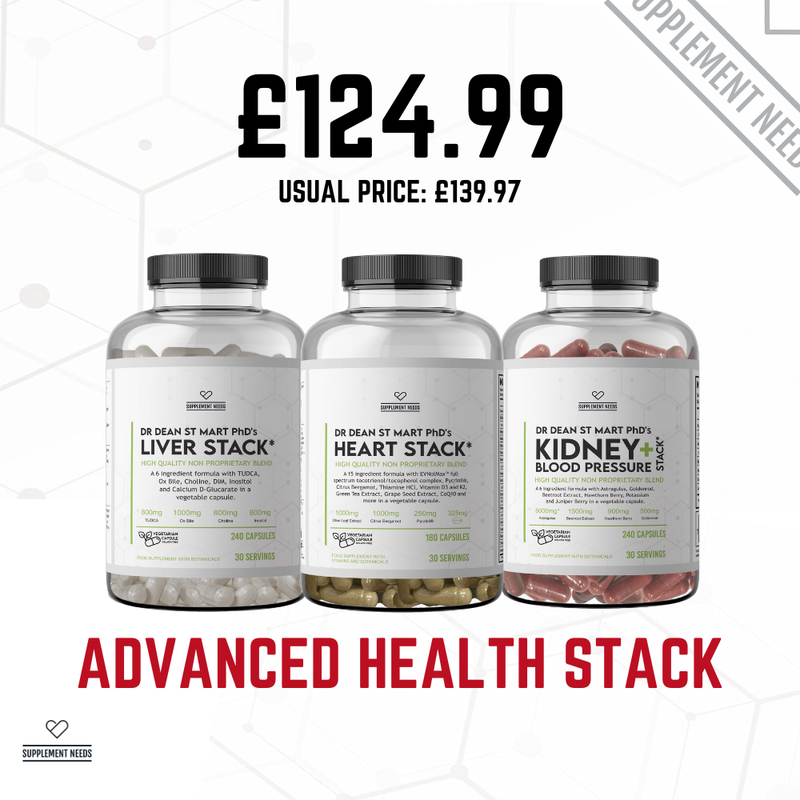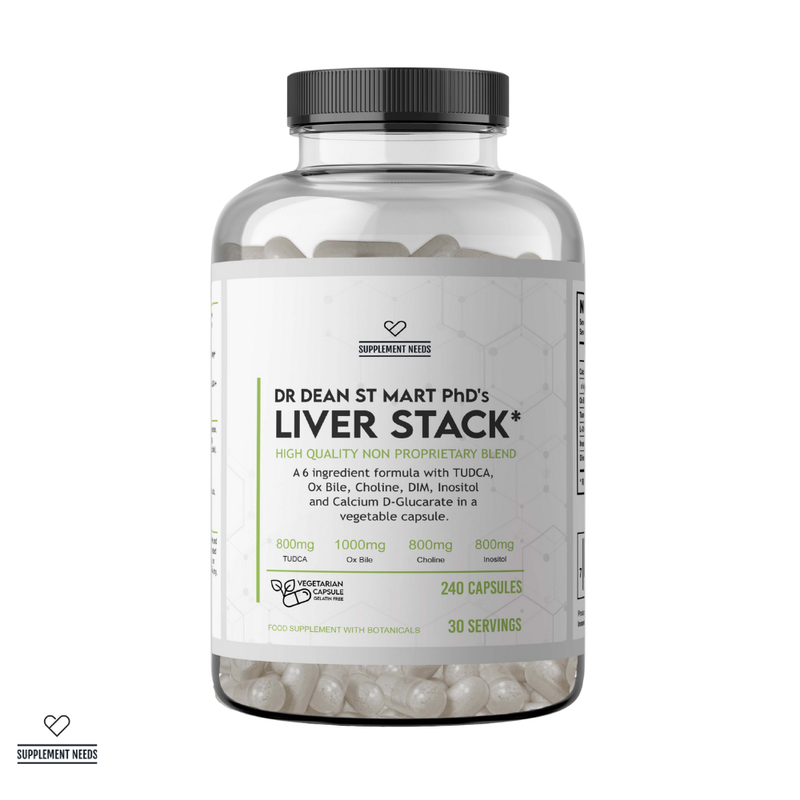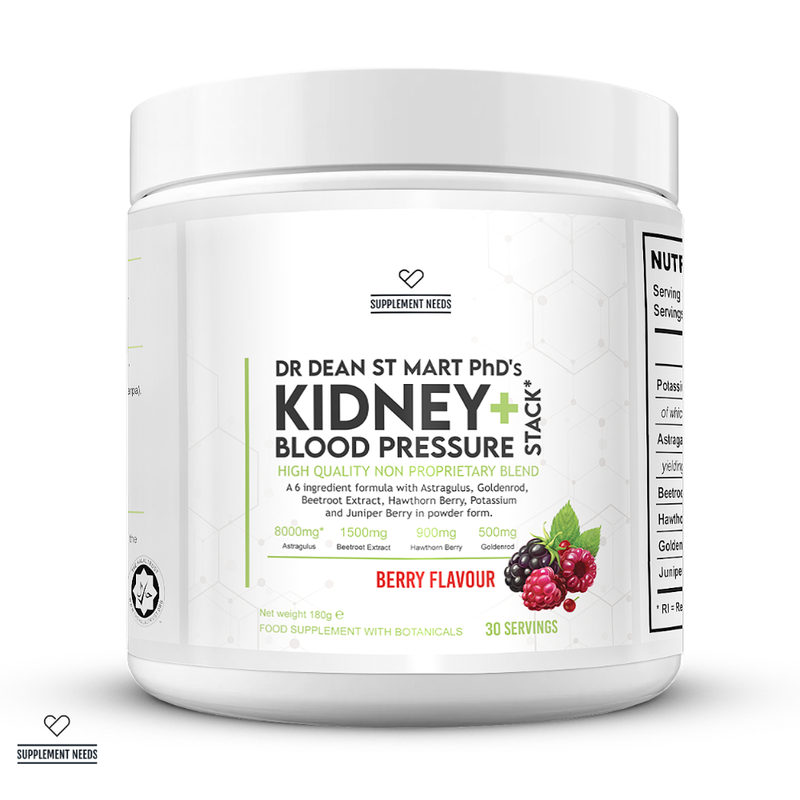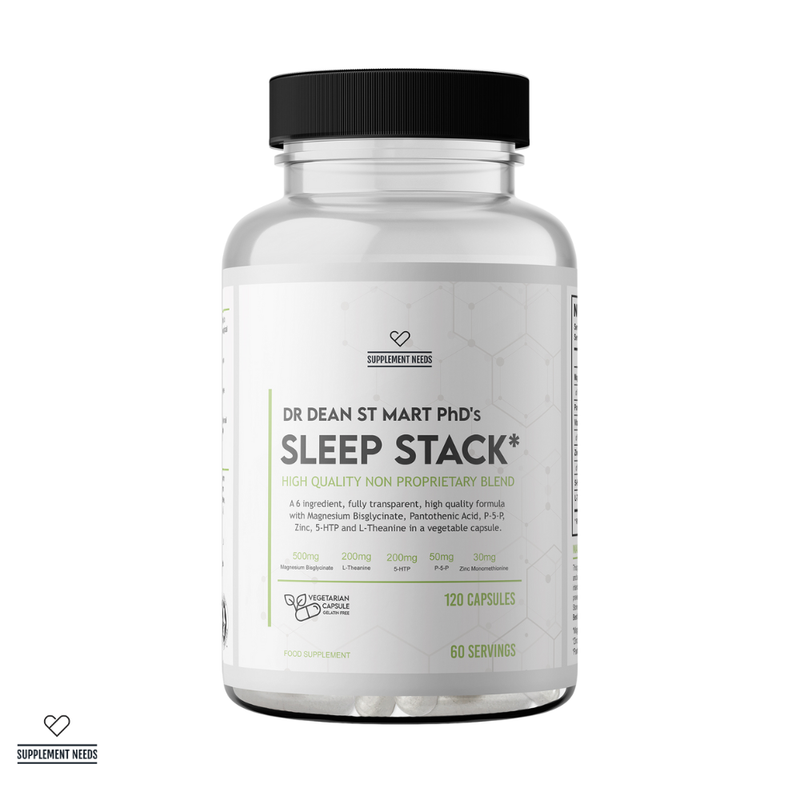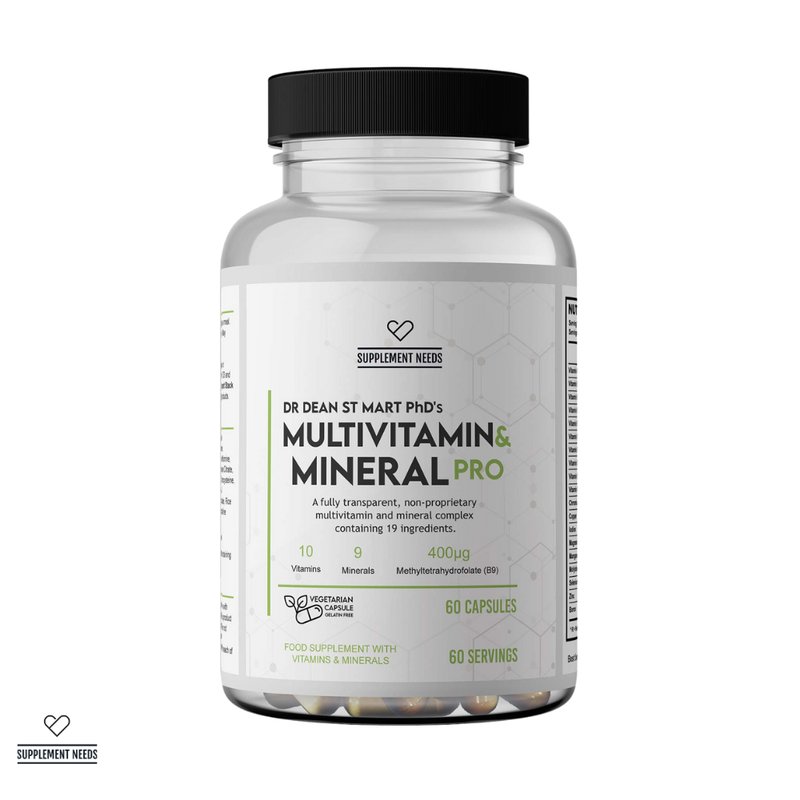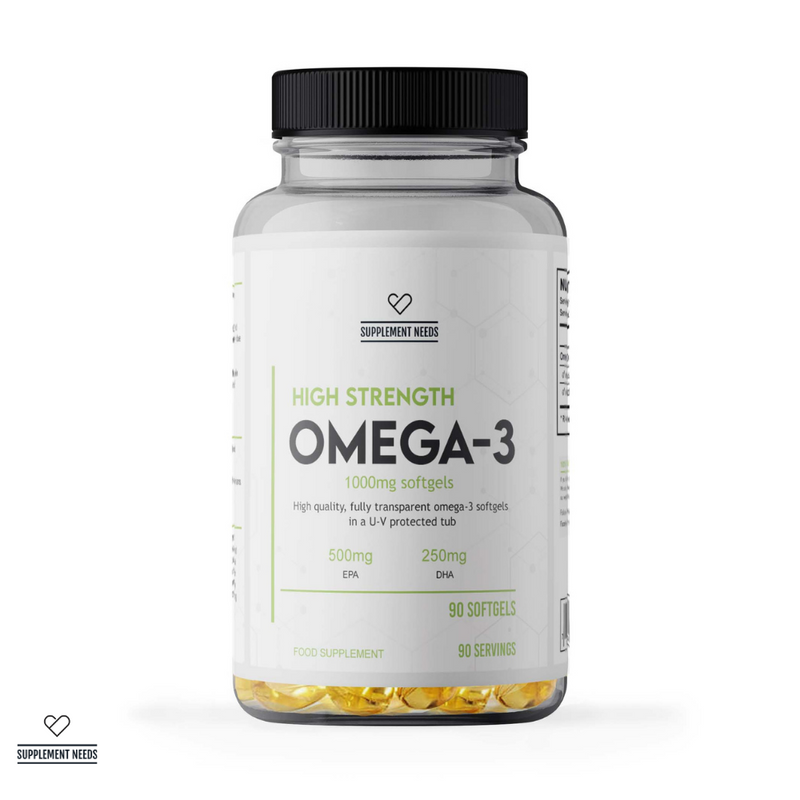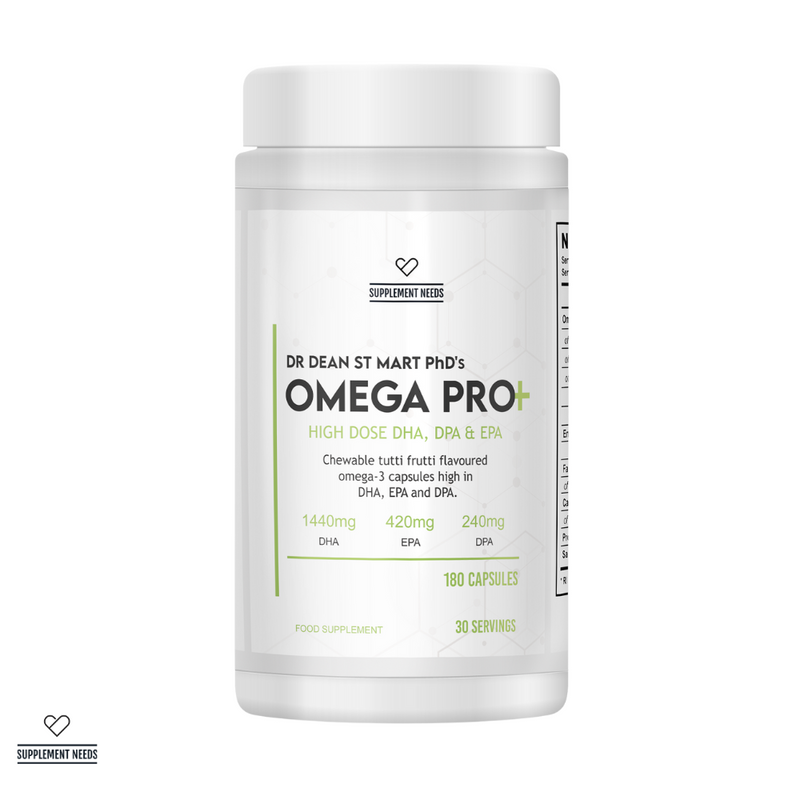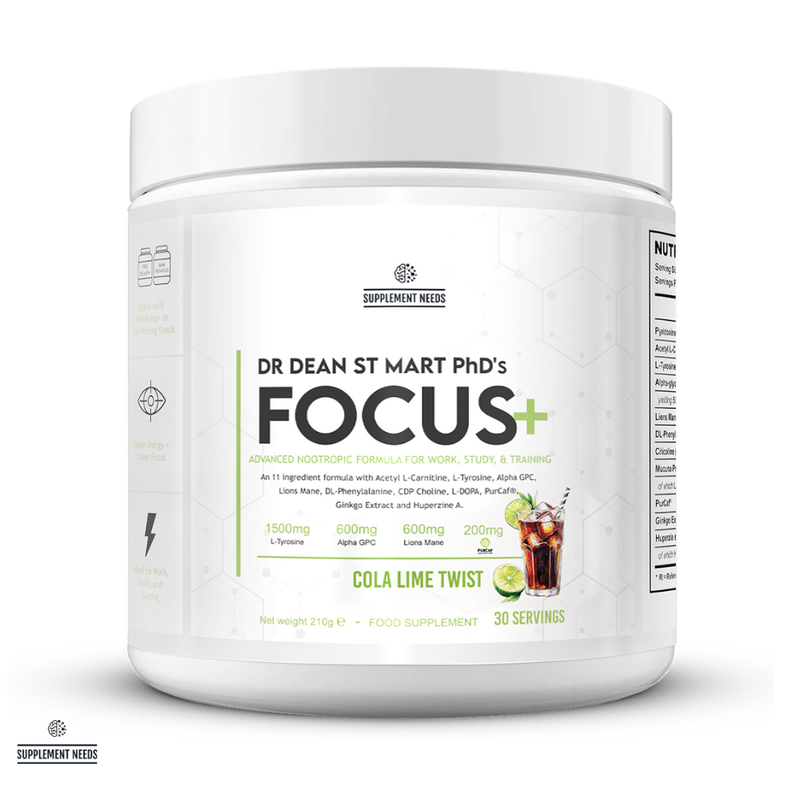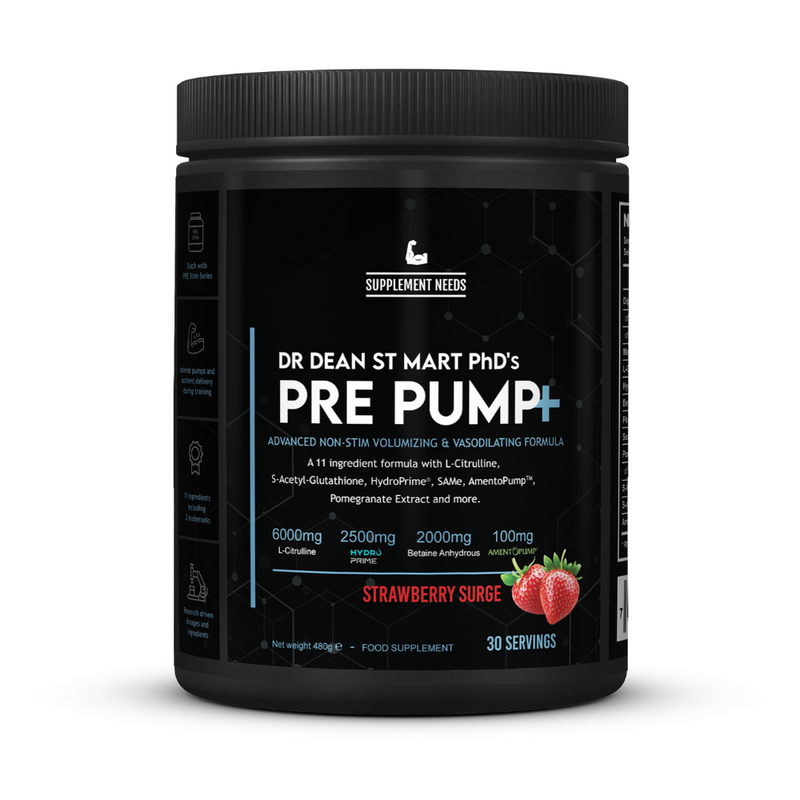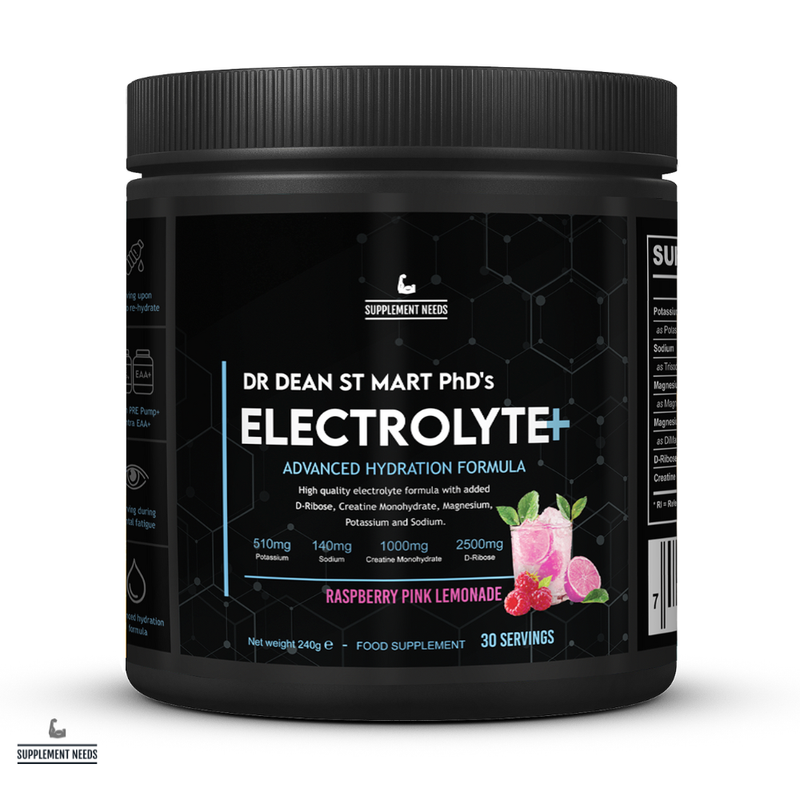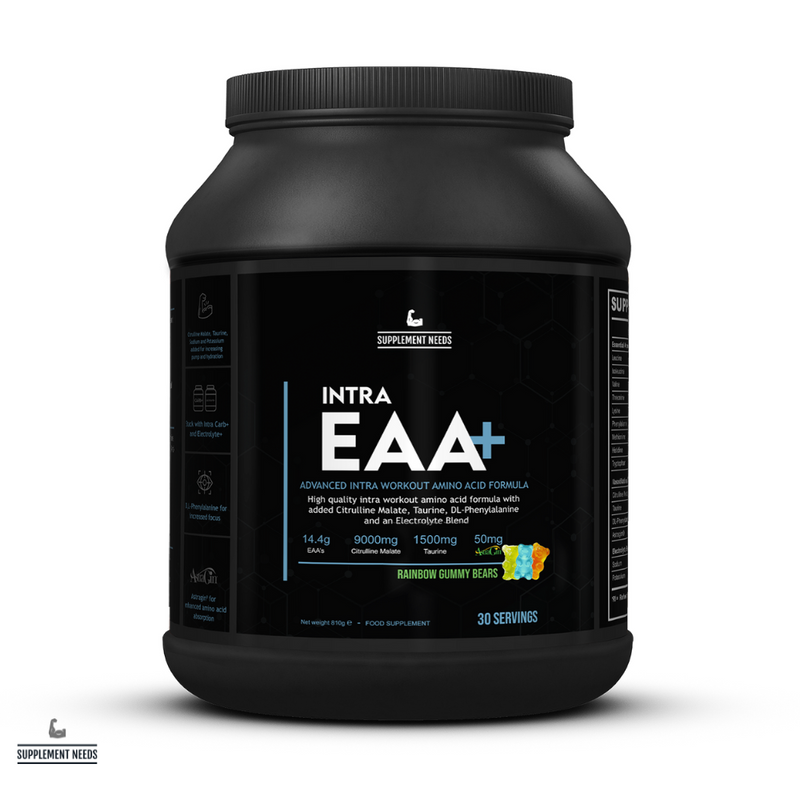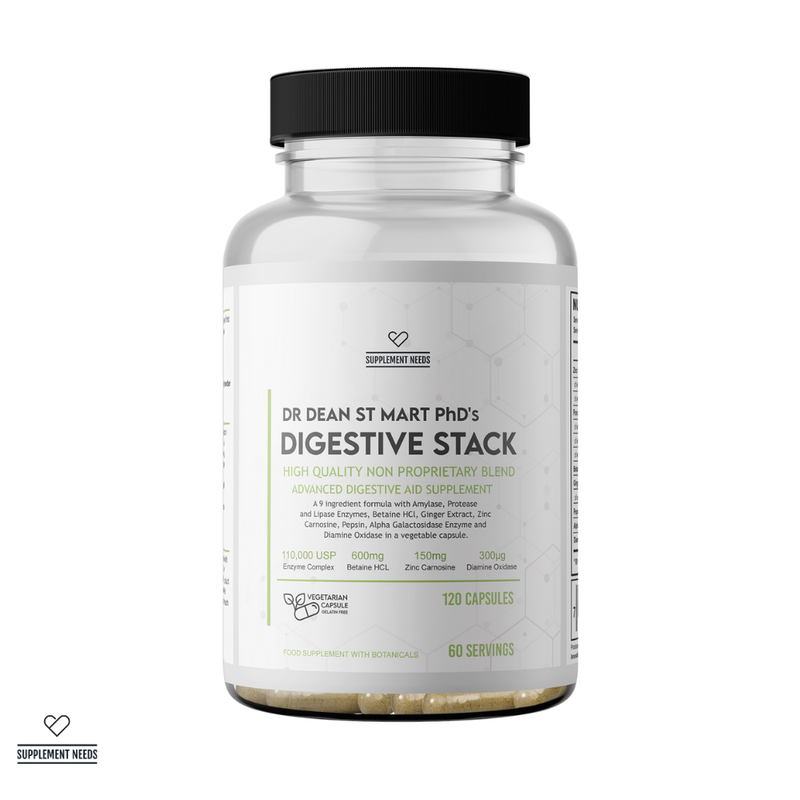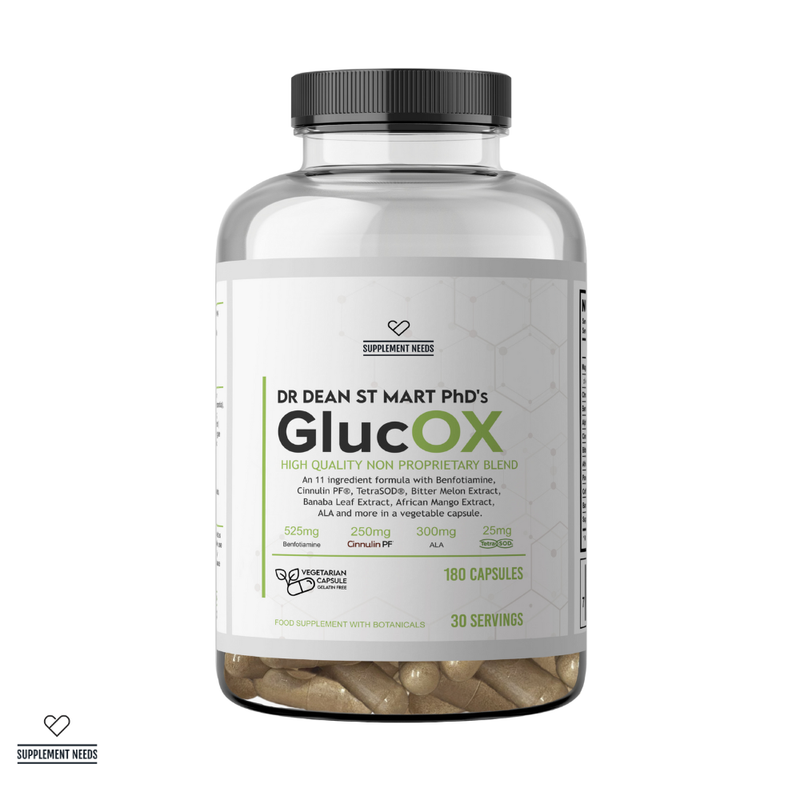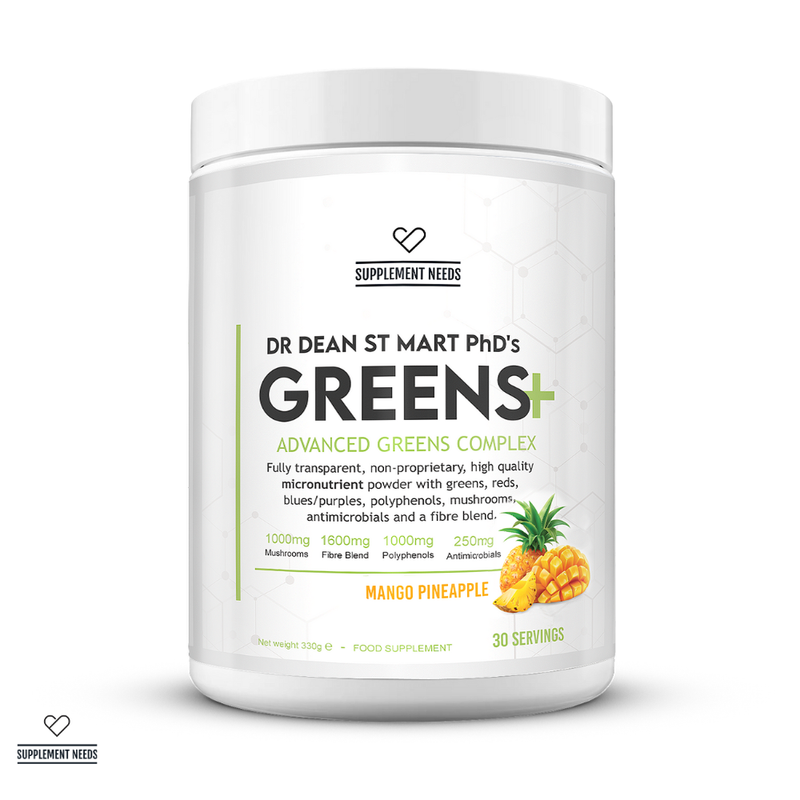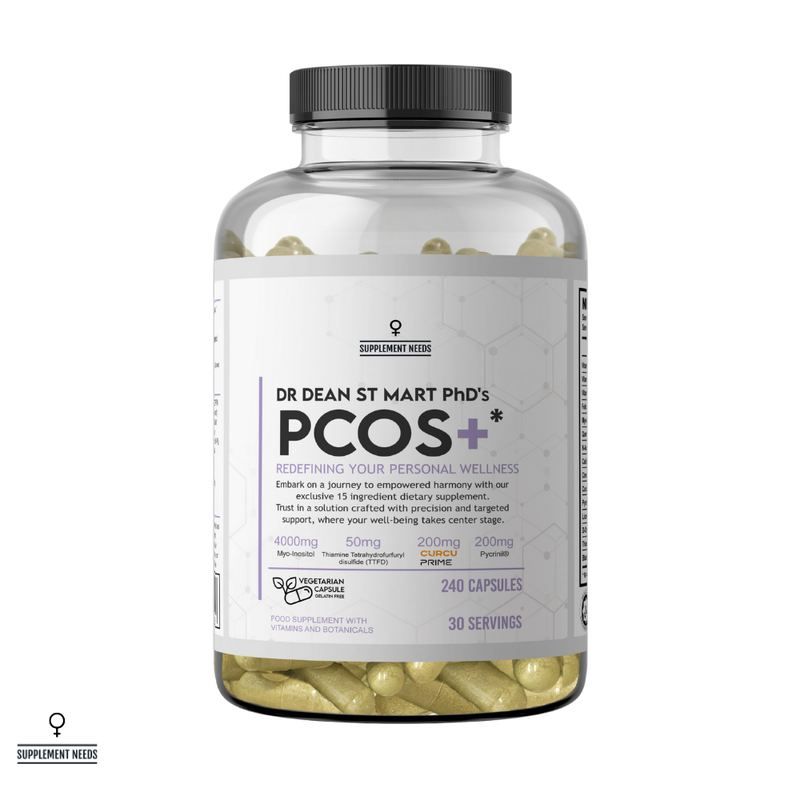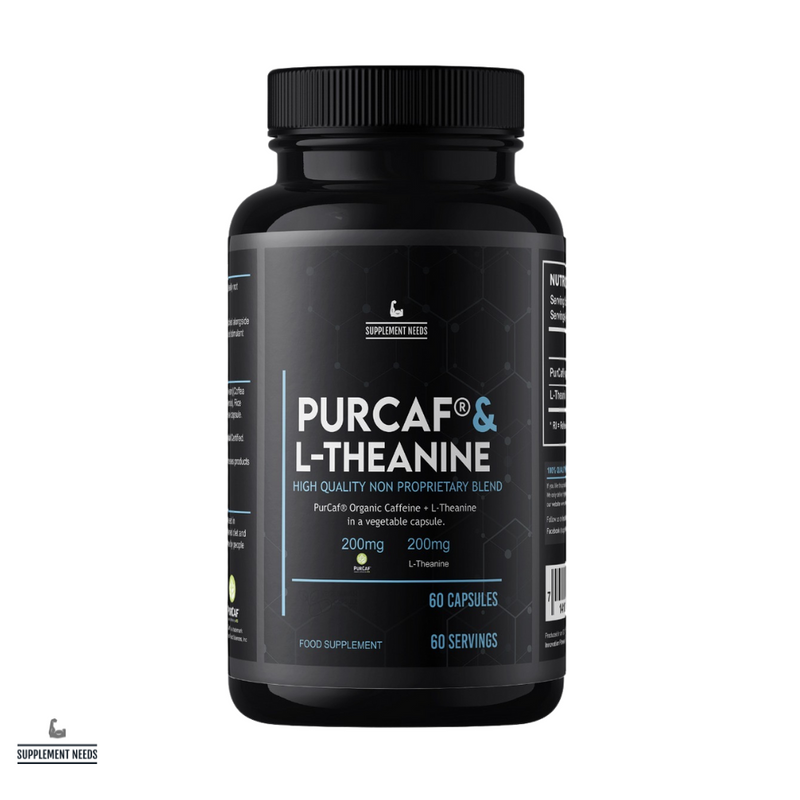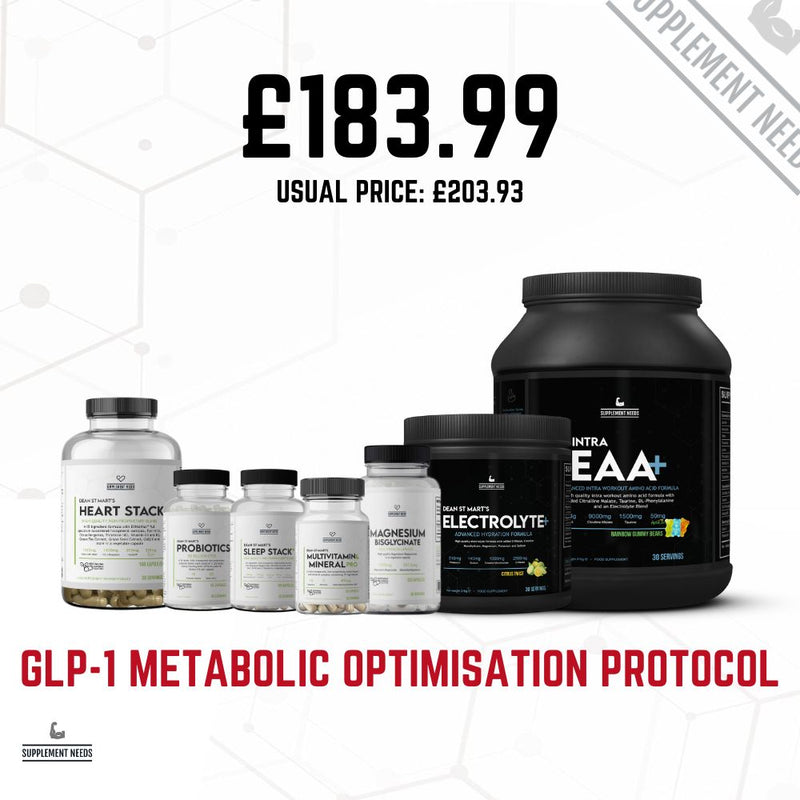For those who are looking to improve their overall health and wellbeing, the first step is often to invest in some quality vitamins and multivitamins. However, there is a dizzying amount of these products to choose from. So, what do you need to know in order to buy the very best vitamins and multivitamins? Find out more in this guide from Supplement Needs…
What are vitamins?
Let’s kick things off with a definition. What exactly are vitamins?
The answer is that vitamins are organic molecules that are essential for the proper metabolic function of the body.
We appreciate that the above sentence may sound rather technical, so let’s break it down into simpler language.
When we say that vitamins are organic molecules, we are referring to the fact that they are made up of carbon and other elements that are produced by plants or animals.
When we say that vitamins are essential for the proper metabolic function of the body, we are referring to the fact that they contribute towards the chemical reactions that keep your body functioning. Your body’s metabolism fulfils three core functions:
- The conversion of energy (from food) into energy to run your body’s cellular processes.
- The conversion of energy (from food) into the building blocks for proteins, lipids, nucleic acids and some carbohydrates.
- The elimination of metabolic wastes - e.g. eliminating substances left over from metabolic processes such as cellular respiration. These substances cannot be used by the body, thus your body’s metabolism forces them to be excreted.
As you can see, vitamins are important for your body. And you’ll find that the vitamins we’re talking about in this article are often called ‘essential vitamins’. This means that they are vitamins that are required for the body to work properly, and which must be obtained from external sources (e.g. foodstuffs).
Given that vitamins are organic molecules produced by plants or animals, it follows that your body obtains its required vitamins from foodstuffs such as meat and vegetables.
Having said that, there are some vitamins that your body is able to synthesise from other sources. For example, Vitamin D can be produced from cholesterol in your skin when exposed to sunlight.
However, obtaining sufficient vitamins for your body can be more challenging than it first seems.
As multiple studies have shown1, obtaining sufficient amounts of vitamins from food can be challenging as the process of storing and cooking foodstuffs can diminish their vitamin content.
To provide you with a tangible example of this, the Vitamin C content of foods such as broccoli, spinach, and lettuce can be reduced by as much as 50% when boiled.2
As a result, it can be difficult for the average person to consume the recommended amount of vitamins their body requires. For example, the National Diet and Nutrition Survey3 found that 1 in 6 adults in the UK have low levels of Vitamin D.
Other examples of vitamin deficiencies include Vitamin B12 (also known as Cobalamin), which contributes to blood formation, and brain and nerve function. Studies suggest that up to 80 to 90% of vegetarians and vegans may be deficient in Vitamin B124.
It’s not only vegetarians and vegans who can suffer from a Vitamin B12 deficiency. Various studies suggest that the body is less able to absorb Vitamin B12 as it ages. As a result, more than 20% of older adults may be deficient in Vitamin B125.
It’s for these reasons (and more), that some people choose to take vitamin supplements in addition to the vitamins they naturally digest from their food.
What vitamins are there?
Hopefully you’ve now got a clearer understanding of what vitamins are. The next question you’re likely to have is ‘what vitamins are there?’.
On a ‘top level’ basis, vitamins can be divided into two categories:
- Water-soluble vitamins.
- Fat-soluble vitamins.
Water-soluble vitamins
As the name suggests, water-soluble vitamins are vitamins that dissolve in water and are typically found in the watery portions of the food you eat. Being water-soluble, these vitamins are absorbed quickly into the body’s bloodstream via the intestinal tract6.
Because your body is largely made up of water, water-soluble vitamins circulate easily, with your kidneys helping to regulate the volume of these vitamins in your body. Should certain of these vitamins be present in too high amounts, your kidneys will effectively ‘shunt them out’ of your body via your urinary system.
As water-soluble vitamins are so easily absorbed - and not stored by the body - they must be replenished on a daily basis.
What water-soluble vitamins are there?
Naturally, you’ll want to know which vitamins are water-soluble. There are two main types of vitamin that are water-soluble; Vitamin C and the B group of vitamins.
Vitamin C (ascorbic acid)
Vitamin C - which is also known as ascorbic acid - is perhaps the most well-known of the water-soluble vitamins. It has several important roles to play, including protecting cells, maintaining healthy skin, bones and cartilage and helping your body to heal wounds.
The official UK Government Dietary Recommendations (Government recommendations for energy and nutrients for males and females aged 1 - 18 years and 19+ years) recommend the following daily recommended intakes of Vitamin C7:
|
Age (years) |
19-64 |
65-74 |
75+ |
|||
|
Gender |
Males |
Females |
Males |
Females |
Males |
Females |
|
Vitamin C (mg/day) |
40 |
40 |
40 |
40 |
40 |
40 |
Vitamin B1 (thiamin)
Vitamin B1 - also known as thiamin - is a particularly important vitamin for your body’s digestion system as it takes the form of thiamin pyrophosphate (TPP), the coenzyme for the transfer of active aldehyde in carbohydrate metabolism.
Put more simply, Vitamin B1 is essential for converting carbohydrates into energy. In fact, it’s so important that the body’s requirement for thiamin is directly correlated with carbohydrate intake - in other words, the more carbs you’re eating, the more thiamin your body will need.
Thiamin also plays an important role in nerve function.
Official UK Government recommendations suggest the following daily intakes of thiamin:
|
Age (years) |
19-64 |
65-74 |
75+ |
|||
|
Gender |
Males |
Females |
Males |
Females |
Males |
Females |
|
Thiamin (mg/day) |
1.0 |
0.8 |
0.9 |
0.8 |
0.9 |
0.7 |
Vitamin B2 (riboflavin)
Vitamin B2 - commonly referred to as riboflavin - is used in several important metabolic pathways. For example, in its coenzyme forms, it functions in oxidation-reduction reactions in energy production.
Put another way, riboflavin is an important vitamin for turning the food you eat into usable energy. In turn, riboflavin contributes to the general growth, development and function of cells within your body.
The recommended daily intakes of riboflavin - as per UK Government recommendations - are as follows:
|
Age (years) |
19-64 |
65-74 |
75+ |
|||
|
Gender |
Males |
Females |
Males |
Females |
Males |
Females |
|
Riboflavin (mg/day) |
1.3 |
1.1 |
1.3 |
1.1 |
1.3 |
1.1 |
Vitamin B3 (niacin)
Niacin - in its active forms, nicotinic acid and nicotinamide - is used for repairing DNA, metabolism and energy production.
Niacin is particularly important for metabolism, given that many of the reactions that are involved in energy metabolism rely on hundreds of enzymes which in turn require niacin (in its coenzyme forms nicotinamide adenine dinucleotide (NAF) and nicotinamide adenine dinucleotide phosphate (NADP)).
UK Government recommendations on daily niacin requirements are as follows:
|
Age |
19-64 |
65-74 |
75+ |
|||
|
Gender |
Males |
Females |
Males |
Females |
Males |
Females |
|
Niacin equivalent* (mg/day) |
16.5 |
13.2 |
15.5 |
12.6 |
15.1 |
12.1 |
*Niacin equivalent = niacin + (tryptophan divided by 60). Note - estimates of niacin requirements take into account the presence of preformed niacin as well as niacin equivalent (NE) from tryptophan metabolism.
Vitamin B5 (pantothenic acid)
You’ll often see Vitamin B5 referred to by the name pantothenic acid. This vitamin is essential for the body for the synthesis of coenzyme A (CoA) (it is a precursor to CoA via a five-step process) - which in turn helps your body synthesise and oxidise fatty acids.
Pantothenic acid also plays a role in helping your body to synthesise and metabolise proteins, carbohydrates, and fats.
In rather more simple terms, Vitamin B5 has several functions, one of which is to help your body release energy from the food you eat.
Unlike many of the other water-soluble vitamins detailed in this article, the UK Government has not set out any recommended daily intakes for Vitamin B5.
Vitamin B6
Vitamin B6 - which takes three distinct forms; pyridoxal, pyridoxine, and pyridoxamine - plays an important role in your body’s production of haemoglobin, a protein found in red blood cells which helps those cells carry oxygen through your bloodstream.
Vitamin B6 also assists your body in using and storing energy from protein and carbohydrates from the food you eat.
UK Government guidelines suggest the following recommended daily intakes for Vitamin B6:
|
Age |
19-64 |
65-74 |
75+ |
|||
|
Gender |
Males |
Females |
Males |
Females |
Males |
Females |
|
Vitamin B6 (mg/day) |
1.4 |
1.2 |
1.4 |
1.2 |
1.4 |
1.2 |
Vitamin B7 (biotin)
Routinely referred to as biotin, Vitamin B7 is also occasionally called ‘Vitamin H’.
As one of the ‘B Vitamins’, biotin helps your body maintain the health of its skin, hair, liver, eyes and general nervous system. Studies have also suggested that biotin plays an important role during pregnancy, contributing to healthy embryonic growth8.
Biotin is abundantly available in a wide range of foods, whilst bacteria that live naturally in your bowel are able to produce biotin; as a result, the UK Government does not recommend the supplementation of biotin.
Here at Supplement Needs we include Biotin within our Multivitamin and Mineral PRO supplement to ensure that the product is comprehensive, contributing to the health of hair, skin, liver, eyes and general nervous system as outlined above.
Vitamin B9 (folate)
Vitamin B9 - which is more commonly known as folate - is a water-soluble vitamin that functions as a coenzyme (or cosubstrate) in single-carbon transfers in the synthesis of nucleic acids (e.g. DNA and RNA)9.
In other words, folate is used by the body in the formation of DNA. It also contributes towards cell growth.
Given that folate plays such an important role in bodily function, a number of countries including the United States and Canada have made it mandatory for foodstuffs to be fortified with folate.
Here in the UK, the Government recommends the following daily intakes of folate:
|
Age (years) |
19-64 |
65-74 |
75+ |
|||
|
Gender |
Males |
Females |
Males |
Females |
Males |
Females |
|
Folate (μg/day) |
200 |
200 |
200 |
200 |
200 |
200 |
Note - it’s important not to confuse folate with folic acid. Whilst the terms are often used interchangeably, they refer to different forms of Vitamin B9. Folate is the naturally occuring form of Vitamin B9, whilst folic acid is the synthetic man-made form of Vitamin B9.
Vitamin B12 (cobalamin)
The last of the B vitamins we’ll be looking at is Vitamin B12 - also known as cobalamin. It derives this secondary name from the fact that it is the only vitamin to contain a metallic element - cobalt.
Like Vitamin B6, Vitamin B12 takes a number of distinct forms - cyanocobalamin, hydroxocobalamin, adenosylcobalamin, and methylcobalamin10. Of these, hydroxocobalamin is the most common naturally occurring form of B12 and is present in a broad range of foodstuffs, including meat, seafood, eggs and dairy products.
As with other B vitamins, B12 acts as a coenzyme and plays an important role in maintaining brain function, neurological function and red blood cell production. Vitamin B12 also assists the conversion of protein and fats from foodstuffs into usable energy for the body.
We mentioned earlier that the body’s ability to absorb Vitamin B12 declines with age. This is because absorption of B12 is dependent upon a protein called the intrinsic factor, which is produced by the stomach. In many older people, the production of the intrinsic factor slows down (or may even stop altogether), resulting in a B12 deficiency11. For this reason, B12 is a particularly common commercially-available supplement.
The UK Government recommends the following daily intakes for Vitamin B12:
|
Age (years) |
19-64 |
65-74 |
75+ |
|||
|
Gender |
Males |
Females |
Males |
Females |
Males |
Females |
|
Vitamin B12 (μg/day) |
1.5 |
1.5 |
1.5 |
1.5 |
1.5 |
1.5 |
Fat-soluble vitamins
The second main group of vitamins is fat-soluble vitamins. These include Vitamin A, Vitamin D, Vitamin E, and Vitamin K.
As their name suggests, fat-soluble vitamins are soluble within adipose tissue (fat tissue) and are most abundant in high-fat foods. Like water-soluble vitamins, fat-soluble vitamins cannot be produced endogenously by the body and thus must be sourced from external sources such as foodstuffs12.
Fat-soluble vitamins are absorbed by the body via the small intestine, before being transported through the lymphatic system, eventually being released into the bloodstream13.
Unlike water-soluble vitamins, fat-soluble vitamins are stored by the body (mainly within fat tissue and the liver) for a period of several weeks or months - or even years in some cases.
Fat-soluble vitamins play several important roles within the body including contributing to bone health, vision, coagulation, and hair growth.
What fat-soluble vitamins are there?
As you’ve just read, there are four main fat-soluble vitamins; A, D, E and K. Below, we’ve provided further information on each of these important vitamins.
Vitamin A
The first of the fat-soluble vitamins to be aware of is Vitamin A.
As with some of the other vitamins featured in this article, Vitamin A is not a single vitamin, but instead refers to a group of related fat-soluble compounds known as retinoids.
The most commonly occurring form of Vitamin A is retinol. The other forms of Vitamin A - retinal and retinoic acid - occur in small forms within the human body, but are largely absent from foodstuffs.
Vitamin A is especially important for maintaining several core bodily functions, including maintaining the light sensing cells in your eyes14. Vitamin A also plays an important role in hair growth, with a deficiency potentially leading to hair loss15.
Furthermore - if Vitamin A didn’t already do enough! - it is an important vitamin for reproductive function, maintaining fertility and contributing to foetal development16.
A particularly important role that Vitamin A plays related immune function as studies indicate that it contributes to antibody production17.
Given the important roles that Vitamin A plays within the body, the UK Government has set out the following recommended daily intakes for adults over 19 years of age:
|
Age (years) |
19-64 |
65-74 |
75+ |
|||
|
Gender |
Males |
Females |
Males |
Females |
Males |
Females |
|
Vitamin A (μg/day) |
700 |
600 |
700 |
600 |
700 |
600 |
Vitamin D
Arguably most well-known as the ‘sunshine vitamin’, Vitamin D - like Vitamin A - is a collective term that refers to a group of related fat-soluble compounds. The two most important compounds in terms of human health are Vitamin D3 (cholecalciferol) and Vitamin D2 (ergocalciferol).
Whilst Vitamin D has numerous roles, it’s perhaps best known for contributing towards the intestinal absorption of the minerals calcium, magnesium, and phosphorus. As a result, Vitamin D plays an important role in maintaining bone health.
As you’ll see when we look at our vitamin and multivitamin buying tips shortly, it’s important to note that when Vitamin D is absorbed into your bloodstream, your liver and kidneys will convert it into calcitriol - which is the biologically active form of Vitamin D.
What’s important from a buying point of view, is that it’s Vitamin D3 that is more easily converted to calcitriol compared to Vitamin D2 (according to a number of studies1819).
The absorption process of Vitamin D3 sees the vitamin first converted to 25(OH) Vitamin D3 (calcifediol) in the liver. It is then further converted to 1α,25(OH)2 Vitamin D3 (calcitriol) in the kidney to gain its full activity.
Given the importance of Vitamin D, some countries fortify products such as cow’s milk and cereals with additional Vitamin D. Here in the UK, the Government has set out the following recommended intakes for this vitamin:
|
Age (years) |
19-64 |
65-74 |
75+ |
|||
|
Gender |
Males |
Females |
Males |
Females |
Males |
Females |
|
Vitamin D (μg/day) |
10 |
10 |
10 |
10 |
10 |
10 |
Vitamin E
Vitamin E is a collective term for a family of eight related antioxidants (these being molecules that fight free radicals within the body).
These eight antioxidants can in turn be divided into two groups:
- Tocopherols:
- Alpha-tocopherol.
- Beta-tocopherol.
- Gamma-tocopherol.
- Delta-tocopherol.
- Tocotrienols:
- Alpha-tocotrienol.
- Beta-tocotrienol.
- Gamma-tocotrienol.
- Delta-tocotrienol.
Of these alpha-tocotrienol is the most common, making up around 90% of the Vitamin E in a person’s bloodstream.
Like the other fat-soluble vitamins detailed in this article, Vitamin E is absorbed into the body via the small intestine. From the small intestine, Vitamin E passes into the lymphatic system and then on to the circulatory system.
These technical details aside, what does Vitamin E actually do for the body?
Among the ‘contributions’ that Vitamin E makes includes protecting cells against premature ageing, preventing oxidative stress, and protecting the fatty acids in your cell membranes20.
Whilst Vitamin E is an important fat-soluble vitamin, the UK Government has not set a recommended daily intake for this vitamin.
Vitamin K
We finish our tour of the fat-soluble vitamins with Vitamin K. Playing a key role in supporting blood clotting, Vitamin K is a group of fat-soluble compounds that are divided into two groups:
- Vitamin K1 (phylloquinone).
- Vitamin K2 (menaquinone).
Of the two groups, Vitamin K1 is the main form of Vitamin K in the diet - from plant-based foods.
Vitamin K2 is found in a number of animal-sourced foods and is also produced by gut bacteria in humans21.
It’s also important to note that there are a number of industrially-produced forms of Vitamin K. These are Vitamin K3 (menadione), Vitamin K4 (menadiol diacetate), and Vitamin K5. These synthesised forms of Vitamin K are generally produced via either controlled natural biofermentation or by chemical synthesis.
As we mentioned above, the main role of Vitamin K within the body is to support blood coagulation - in other words, clotting.
However, studies have also revealed that Vitamin K supports other bodily processes such as bone health22.
At the time of writing, the UK Government has not set out any recommended daily intake guidelines for Vitamin K.
A note on measurements
When reading the tables above, you may have noticed that doses are listed using different units of measurement. The most common units of measurement used for vitamins are as follows:
- Micrograms - a microgram is defined as a unit of mass equal to one millionth of a gram. Micrograms are normally abbreviated as ‘mcg’ or ‘μg’.
- Milligrams - a milligram is defined as a unit of mass equal to one thousandth of a gram. Milligrams are usually abbreviated as ‘mg’.
What is a vitamin supplement?
Now that we’ve examined the different water-soluble and fat-soluble vitamins that exist, our next step is to look at vitamin supplements.
As we saw earlier, you can derive most of the vitamins your body needs from a standard, healthy diet. However, some people seek to supplement their dietary intake with additional vitamin supplements.
Vitamin supplements are available in a variety of forms, including capsule, powder, gummy or liquid forms. They typically (but not always) contain a single vitamin.
The classic example is of a Vitamin C supplement - this will be a single capsule that you consume each day that contains a concentrated dose of Vitamin C (ascorbic acid).
But, what about multivitamins? That brings us on to our next point…
Vitamins vs multivitamins: what’s the difference?
If you’re not overly familiar with supplementation, all this talk of vitamins and multivitamins can get confusing.
To clarify - there is a difference between vitamin supplements and multivitamin supplements.
Vitamin supplements contain a concentrated dose of a single vitamin, whilst a multivitamin supplement will contain a blend of vitamins.
Each of these types of supplement has their pros and cons.
For example:
- A vitamin supplement can help you target a specific deficiency. By taking a vitamin supplement containing a dose of a single vitamin, you can closely track and monitor your intake.
- Multivitamins on the other hand, provide a highly convenient way of providing your body with a range of vitamins on a daily basis.
Whether a multivitamin or vitamin supplement is right for you is dependent on a huge range of factors, including your individual health needs and requirements. If in doubt, please seek the advice of a qualified medical professional.
What about minerals?
At this point, you may be wondering about how minerals fit into the picture.
After all, you’ll often see multivitamin and mineral supplements on the shelves of health stores. Our own Supplement Needs Multivitamin and Mineral PRO features both vitamins and minerals.
Whereas vitamins are organic compounds, predominantly derived from plants and animals, minerals are inorganic compounds, being derived from rocks, soils and water.
Minerals are also single elements (also known as ‘native elements’) - meaning they do not contain carbon. As a result, they cannot be broken down into further constituent parts and are thus easier for the body to absorb.
Minerals are broadly divided into two categories; macrominerals and trace minerals. The body will typically need larger amounts of macrominerals, and these include calcium, phosphorus, and chloride (amongst others). Trace minerals are required in smaller amounts and include copper, zinc, cobalt and more.
Minerals are typically (but not always) included as part of a multivitamin supplement to create a complementary vitamin and mineral blend.
What minerals should I look for in supplements?
Whilst there are thousands of different minerals available on planet Earth, there are a handful that are particularly suited to supplementation.
Based on our own experience here at Supplement Needs, we have set out the key minerals you should look for in your multivitamin supplements below.
Boron
Believed to play a key role in helping your body to maintain bone health and central nervous system function23, Boron (B) is a good mineral to look for in multivitamins.
Boron also plays a role in prolonging the longevity of other minerals and vitamins present in the human body. For example, it has been suggested that Boron plays a role in extending the half-life of important vitamins like Vitamin D and hormones such as oestrogen - although the verdict is still out on this.
The Supplement Needs Multivitamin and Mineral PRO supplement contains 3 mg of Boron (as boron amino acid chelate) per single capsule serving. We include Boron primarily due to its effects on lowering SHBG24. Excessively high levels of sex hormone binding globulin (SHBG) are associated with infertility, a decreased sex drive and even erectile dysfunction, according to studies25.
Chromium
Chromium (Cr) is a good mineral to look for in multivitamins as it contributes towards the breakdown and absorption of carbohydrates, proteins and fats.
The Supplement Needs Multivitamin and Mineral PRO supplement contains 0.2 mg of Chromium (as chromium picolinate) per single capsule serving.
Copper
Copper (Cu) is another mineral that is found in quality multivitamins. Why? Because it is the cofactor for a number of enzymes (specifically cuproenzymes) that are involved in energy production, neuropeptide activation, connective tissue synthesis and more26.
The Supplement Needs Multivitamin and Mineral PRO supplement contains 2 mg of copper (as copper bisglycinate chelate) per capsule serving.
Iodine
Iodine (I), is a mineral that is an essential component of the thyroid hormones thyroxine (T4) and triiodothyronine (T3). It’s these thyroid hormones that regulate a number of important biochemical reactions within the body. They’re also important parts of the body’s metabolic activity.
Put in less technical terms, Iodine promotes good thyroid health. This is important as the thyroid gland helps regulate hormone production, which in turn controls your metabolism and heart health.
The Supplement Needs Multivitamin and Mineral PRO supplement contains 0.1 gm of Iodine (as potassium iodine) per capsule serving.
Magnesium
Magnesium (Mg), is a mineral that is a cofactor in hundreds of enzyme systems in the body. These enzyme systems regulate numerous biochemical reactions including protein synthesis, muscle function and blood pressure regulation27.
Set the technical explanation aside, and what does that mean for the average person in the street? In short, Magnesium can support a range of bodily functions. For example, some studies suggest that Magnesium can calm the nervous system and reduce stress over a period of 90 days28.
Here at Supplement Needs we’re big fans of Magnesium, which is why our Multivitamin and Mineral PRO supplement contains 100 mg of magnesium per capsule serving (as Magnesium Oxide and Magnesium Citrate).
Manganese
Manganese (Mn) is another trace mineral that is essential to the body’s optimal functioning.
As with some of the other minerals detailed in this article, Manganese is a coenzyme that assists many of the body’s enzymes responsible for breaking down carbohydrates, proteins, and cholesterol29.
It’s for that reason that we include 2 mg of Manganese (as manganese citrate and manganese gluconate) in each single capsule serving of our Multivitamin and Mineral PRO supplement.
Molybdenum
Used by the body to process proteins and genetic materials such as DNA, Molybdenum (Mo) is another mineral that you’ll sometimes find in multivitamins.
Molybdenum can also help to break down drugs and other toxic substances that are consumed. Whilst many foods contain Molybdenum, the exact amount a foodstuff will contain is highly dependent on the amount of Molybdenum that was in the soil and water that was used in the production of the foodstuff30.
Here at Supplement Needs we add 0.1 mg of Molybdenum (as molybdenum amino acid chelate) per single capsule serving of our Multivitamin and Mineral PRO supplement.
Selenium
An increasingly popular mineral for inclusion in multivitamin supplements is Selenium (Se).
Acting as both an antioxidant and a contributor to optimal thyroid hormone regulation, Selenium has many reported benefits and is typically derived from soil.
As it is a trace mineral, the body only needs a small amount of Selenium.
The Supplement Needs Multivitamin and Mineral PRO supplement contains 0.2 mg of Selenium (as se-methyl l-selenocysteine).
Zinc
Zinc (Zn) is another mineral that is required for the proper functioning of hundreds of enzymes within the body.
Furthermore, a meta analysis and systematic review of 24 studies31 found that Zinc supplements decreased levels of total LDL cholesterol (that’s the bad form of cholesterol!) and blood triglycerides.
The Supplement Needs Multivitamin and Mineral PRO supplement contains 25 mg (as zinc mono-l-methionine) per one capsule serving.
What to look for in multivitamins
Now that we’ve looked at both the vitamins and minerals that are most commonly found in multivitamins, we’ll examine the key characteristics you should be looking for when choosing a multivitamin.
Look for multivitamins that contain the ‘active’ form of vitamins
Did you know that there can be both inactive and active forms of certain vitamins?
If you want to ensure you buy the very best multivitamin, then look for those multivitamins that contain the ‘active’ form of vitamins.
Without going into overly technical detail, the difference between inactive and active vitamins is that inactive vitamins require the body to convert them to a form that is usable by the body.
The active form of vitamins on the other hand are already ‘bioavailable’, meaning they are metabolised and can be absorbed and used by the body much faster. In other words, when you consume ‘active’ vitamins, your body can begin using them to support bodily functions much sooner.
The table below details the active forms of both water-soluble and fat-soluble vitamins:
|
Water-Soluble Vitamins |
(Biological Form) |
|
Vitamin B1 (Thiamine) |
Thiamine pyrophosphate (TPP) |
|
Vitamin B2 (Riboflavin) |
FMN/FMNH2 or FAD/FADH2 |
|
Vitamin B3 (Niacin) |
NAD+/NADH or NADP+/NADPH |
|
Vitamin B5 (Pantothenic acid) |
Panthenol |
|
Vitamin B6 (Pyridoxine) |
Pyridoxal Phosphate (PLP or P5P) |
|
Vitamin B7 (Biotin) |
Biotin |
|
Vitamin B9 (Folate) |
5-Methyltetrahydrofolate (5-MTHF) or Folinic Acid |
|
Vitamin B12 (Cobalamin) |
Cobamamide Methylcobalamin |
|
Fat-Soluble Vitamins |
Active Form |
|
Vitamin A (Retinol) |
Retinal, Retinoic Acid |
|
Vitamin D (Calciferol) |
1,25-dihydroxyvitamin D (Calcitriol) |
|
Vitamin E (Tocopherol) |
Tocopherol and Tocotrienol |
|
Vitamin K (Phytomenadione) |
Vitamin K Hydroquinone |
Look for multivitamins that contain the active forms of the above vitamins, and you’ll ensure that you’re only buying vitamins that are going to be absorbed and used by your body.
As we often say here at Supplement Needs, if you decide to buy cheap supermarket supplements (which typically contain the inactive form of vitamins), you’ll effectively be buying ‘expensive wee’ as your body will end up excreting the vitamins in the form of urine!
Look for multivitamins that contain ‘chelated’ minerals
Just as active vitamins can be more easily absorbed by the body compared to inactive vitamins, a similar situation pertains to minerals.
Minerals that are ‘chelated’ are more easily absorbed by the body. This is because chelated minerals are minerals that have been chemically combined with a ‘chelating agent’ - typically amino acids or other organic acids; the body absorbs amino acids effectively, thus the attached minerals benefit from this absorption, too.
Many minerals are available in a chelated form, with examples including:
- Calcium.
- Chromium.
- Cobalt.
- Copper.
- Magnesium.
- Molybdenum.
Here at Supplement Needs you’ll find that our Multivitamin and Mineral PRO supplement contains the chelated form of minerals. These include:
- Magnesium citrate.
- Zinc mono-l-methionine.
- Boron amino acid chelate.
- Copper bisglycinate chelate.
- Manganese citrate.
- Chromium picolinate.
- Molybdenum amino acid chelate.
By selecting a multivitamin that contains the chelated forms of minerals, you’ll ensure you’re buying a supplement that’ll potentially offer far better value for money than cheaper supplements with non-chelated minerals.
Transparent dosing
Another important thing to look for - to ensure you’re buying the best possible multivitamin supplements - is to look for transparent dosing.
By transparent dosing, we’re referring to complete visibility of not only what ingredients are contained within a supplement, but the amounts in which those ingredients are present.
When a supplement is transparent about what it includes you can be reassured that you’ll be taking a supplement that actually contains decent amounts of vitamins and minerals - and isn’t simply packed with bulking agents.
Here at Supplement Needs we are completely transparent about the dosing of our supplements. Simply click on the ‘Nutritional Information’ tab within the product description, and you’ll be presented with a complete list of ingredients:

Price
Another important factor to consider when choosing a multivitamin supplement is price.
We cannot emphasise enough the degree to which cheap supplements are a false economy.
As the information as above has explained, cheap supplements typically do not contain vitamins and minerals in the optimal form for absorption. As a result, with many cheap supplements, you’ll effectively end up peeing out the vitamins and minerals as they won’t have been effectively absorbed by your body.
If you’ll excuse our language for a moment, you’ll be literally p*ssing your money away!
Credentials
It’s also important to look for a multivitamin supplement that has been developed by a credentialed company and/or expert.
For example, here at Supplement Needs our Multivitamin and Vitamin PRO supplement has been developed by Dr Dean St Mart.
In addition to being Supplement Needs’ Product Manager and Formulator, Dean holds a double first class honours degree in chemistry and pharmaceutical chemistry from the National University of Ireland Maynooth (where he finished top of the university). He also holds a PhD in synthetic organic chemistry and fluorescence spectroscopy.
With those credentials you can be assured that you’re buying a multivitamin supplement that has been expertly formulated.
Be wary of those supplement brands that can’t demonstrate similar credentials…
Ready to buy a multivitamin supplement?
We hope you’ve found our guide to buying vitamins and multivitamins both useful and interesting.
If you’re now ready to invest in your health and buy a multivitamin, then consider Supplement Needs’ Multivitamin and Mineral PRO. It’s a fully transparent, non-proprietary product containing 19 ingredients of which 10 vitamins and nine minerals - all at efficacious doses.
The Supplement Needs Multivitamin and Mineral PRO is also available in two sizes; 30 or 60 capsules.
We offer free standard delivery for orders over £20 as well as Saturday delivery.
Shop Supplement Needs Multivitamin and Mineral PRO now
Disclaimer
The information on this website should not be used as a substitute for professional medical advice or care. If you have questions about your health, please contact your doctor.
References
1. Lee S, et al. (2018). Effects of different cooking methods on the content of vitamins and true retention in selected vegetables [online]. Available from: https://www.ncbi.nlm.nih.gov/pmc/articles/PMC6049644/ (Accessed 11th September 2023).
2. Gaofeng Yuan, Bo Sun, Jing Yuan, Qiao-mei Wang. (2009). Effects of different cooking methods on health-promoting compounds of broccoli [online]. Available from: https://pubmed.ncbi.nlm.nih.gov/19650196/ (Accessed 11th September 2023).
3. Public Health England (22nd September 2021). National Diet and Nutrition Survey [online]. Available from: https://www.gov.uk/government/collections/national-diet-and-nutrition-survey (Accessed 11th September 2023).
4. Roman Pawlak, Scott James Parrott, Sudha Raj, Diana Cullum-Dugan, Debbie Lucas. (2013). How prevalent is vitamin B(12) deficiency among vegetarians? [online]. Available from: https://pubmed.ncbi.nlm.nih.gov/23356638/ (Accessed 11th September 2023).
5. Emmanuel Andrès, Noureddine Henoun Loukili, Esther Noel, Georges Kaltenbach, Maher Ben Abdelgheni, Anne Elisabeth Perrin, Marie Noblet-Dick, Frédéric Maloisel, Jean-Louis Schlienger, Jean-Frédéric Blicklé. (2004). Vitamin B12 (cobalamin) deficiency in elderly patients [online]. Available from: https://pubmed.ncbi.nlm.nih.gov/15289425/ (Accessed 11th September 2023).
6. Hamid M. Said. (2011). Intestinal absorption of water-soluble vitamins in health and disease [online]. Available from: https://www.ncbi.nlm.nih.gov/pmc/articles/PMC4049159/ (Accessed 11th September 2023).
7. Public Health England (25th September 2018). Government Dietary Recommendations. Government recommendations for energy and nutrients for males and females aged 1 - 18 years and 19+ years [online]. Available from: https://assets.publishing.service.gov.uk/government/uploads/system/uploads/attachment_data/file/618167/government_dietary_recommendations.pdf (Accessed 11th September 2023).
8. Cydne A Perry, Allyson A West, Antoinette Gayle, Lauren K Lucas, Jian Yan, Xinyin Jiang, Olga Malysheva, Marie A Caudill. (2014). Pregnancy and Lactation Alter Biomarkers of Biotin Metabolism in Women Consuming a Controlled Diet [online]. Available from: https://www.ncbi.nlm.nih.gov/pmc/articles/PMC4230210/ (Accessed 11th September 2023).
9. LB Bailey, MA Caudill. Folate. In: JW Erdman, IA Macdonald, SH Ziesel, eds. Present Knowledge in Nutrition. 10th ed. Washington, DC: Wiley-Blackwell; 2012:321-42.
10. J Farquharson, J F Adams. (1976). The forms of vitamin B12 in foods [online]. Available from: https://pubmed.ncbi.nlm.nih.gov/820366/ (Accessed 11th September 2023).
11. Lindsay H Allen. (2009). How common is vitamin B-12 deficiency? [online]. Available from: https://pubmed.ncbi.nlm.nih.gov/19116323/ (Accessed 11th September 2023).
12. Priya Reddy, Ishwarlal Jialal. (2022). Biochemistry, Fat Soluble Vitamins [online]. Available from: https://www.ncbi.nlm.nih.gov/books/NBK534869/# (Accessed 12th September 2023).
13. Desiree Nedra Karunarante, Dunusingha Asitha Surandika Siriwardhana, Isuru Rangana Ariyarathna, Rajakaruna Mudiyanselage Pradeepa Indunil Rajakaruna, Frousnoon Thasneem Banu, Veranja Karunaratne. In: Alexandru Grumezescu, ed. (2017). Nutrient Delivery: Nanotechnology in the Agri-Food Industry. 5th volume. Academic Press.
14. A Sommer. (1998). Xerophthalmia and vitamin A status [online]. Available from: https://pubmed.ncbi.nlm.nih.gov/9537797/ (Accessed 12th September 2023).
15. N K Terezakis, G S Bazzano. (1988). Retinoids: compounds important to hair growth [online]. Available from: https://pubmed.ncbi.nlm.nih.gov/3063367/ (Accessed 12th September 2023).
16. Margaret Clagett-Dame, Danielle Knuston. (2011). Vitamin A in reproduction and development [online]. Available from: https://pubmed.ncbi.nlm.nih.gov/22254103/ (Accessed 12th September 2023).
17. Zhiyi Huang, Yu Liu, Guangying Qi, David Brand, Song Guo Zheng. (2018). Role of Vitamin A in the Immune System [online]. Available from: https://www.ncbi.nlm.nih.gov/pmc/articles/PMC6162863/ (Accessed 14th September 2023).
18. H M Trang, D E Cole, L A Rubin, A Pierratos, S Siu, R Vieth. (1998). Evidence that vitamin D3 increases serum 25- hydroxyvitamin D more efficiently than does vitamin D2 [online]. Available from: https://pubmed.ncbi.nlm.nih.gov/9771862/ (Accessed 12th September 2023).
19. Elisabetta Romagnoli, Maria Lucia Mascia, Cristiana Cipriani, Valeria Fassino, Franco Mazzei, Emilio D’Erasmo, Vincenzo Carnevale, Alfredo Scillitani, Salvatore Minisola. (2008). Short and long-term variations in serum calciotropic hormones after a single very large dose of ergocalciferol (vitamin D2) or cholecalciferol (vitamin D3) in the elderly [online]. Available from: https://pubmed.ncbi.nlm.nih.gov/18492750/ (Accessed 12th September 2023).
20. G W Burton, A Joyce, K U Ingold. (1983). Is Vitamin E the only lipid-soluble, chain-breaking antioxidant in human blood plasma and erythrocyte membranes? [online]. Available from: https://pubmed.ncbi.nlm.nih.gov/6830261/ (Accessed 12th September 2023).
21. M Kaneki, S J Hodges, T Hosoi, S Fujiwara, A Lyons, S J Crean, N Ishida, M Nakagawa, M Takechi, Y Sano, Y Mizuno, S Hoshino, M Miyao, S Inoue, K Horiki, M Shiraki, Y Ouchi, H Orimo. (2001). Japanese fermented soybean food as the major determinant of the large geographic difference in circulating levels of vitamin K2: possible implications for hip-fracture risk [online]. Available from: https://pubmed.ncbi.nlm.nih.gov/11369171/ (Accessed on 12th September 2023).
22. Cees Vermeer. (2012). Vitamin K: the effect on health beyond coagulation - an overview [online]. Available from: https://pubmed.ncbi.nlm.nih.gov/22489224/ (Accessed 12th September 2023).
23. Forrest H Nielsen. (2014). Update on human health effects of boron [online]. Available from: https://pubmed.ncbi.nlm.nih.gov/25063690/ (Accessed 12th September 2023).
24. Lara Pizzorno. (2015). Nothing Boring About Boron [online]. Available from: https://www.ncbi.nlm.nih.gov/pmc/articles/PMC4712861/ (Accessed 14th September 2023).
25. H S Ahn, C M Park, S W Lee. (2002). The clinical relevance of sex hormone levels and sexual activity in the ageing male. Available from: https://pubmed.ncbi.nlm.nih.gov/11942957/ (Accessed on 14th September 2023).
26. Prohaska JR. Copper. In: Erdman JW, Macdonald IA, Zeisel SH, eds. Present Knowledge in Nutrition. 10th ed. Washington, DC: Wiley-Blackwell; 2012:540-53.
27. Rude RK. Magnesium. In: Coates PM, Betz JM, Blackman MR, Cragg GM, Levine M, Moss J, White JD, eds. Encyclopaedia of Dietary Supplements. 2nd ed. New York, NY: Informa Healthcare; 2010:527-37.
28. Elmar Wienecke, Claudia Nolden. (2016). Long-term HRV analysis shows stress reduction by magnesium intake [online]. Available from: https://pubmed.ncbi.nlm.nih.gov/27933574/ (Accessed on 12th September 2023).
29. National Institutes of Health Office of Dietary Supplements: Manganese Fact Sheet for Health Professionals. Available from: https://ods.od.nih.gov/factsheets/Manganese-HealthProfessional/ (Accessed 13th September 2023).
30. National Institutes of Health Office of Dietary Supplements: Molybdenum Fact Sheet for Health Professionals. Available from: https://ods.od.nih.gov/factsheets/Molybdenum-Consumer/ (Accessed 13th September 2023).
31. Priyanga Ranasinghe, WS Wathurapatha, MH Ishara, R Jayawardana, P Galappatthy, P Katulanda, GR Constantine. (2015). Effects of Zinc supplementation on serum lipids: a systematic review and meta-analysis [online]. Available from: https://www.ncbi.nlm.nih.gov/pmc/articles/PMC4523910/ (Accessed on 12th September 2023).
